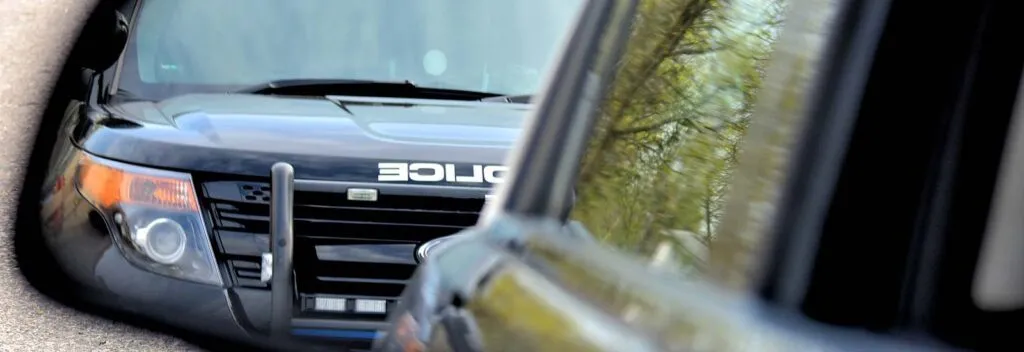What is Operating Under the Influence?
OUI cases are simply drunk driving cases. The better thing to do is to call themimpaired drivingcases. That’s because one doesn’t need to be “drunk” to getarrested or convicted. Like all crimes, an OUI is made up of elements that the prosecution must provebeyond a reasonable doubt.
In order to win its case against you, the prosecutor must prove that you, the driver, (1) operated a motor vehicle (2) on a public way (3) under the influence of intoxicating liquor OR (4) with a blood alcohol concentration of .08 or greater.
Let’s break down these elements with ourMassachusetts OUI attorney.
For a free legal consultation, call (781) 740-0800
Operation of a Motor Vehicle
Most people understand what it means to operate a car. What most people don’t realize is that, in theeyes of the law, you don’t actually need to be driving to be “operating” a motor vehicle. When you do any act which tends to set the vehicle in motion, you’re “operating the car.”
If the engine is running—even if you’re not driving—you are operating the car.Sitting in a parked car with the heat running is enough to count as operation. Likewise, most people know what a car is. Amotor vehicle can include an ATV, but a motor vehicle is not a wheelchair, or a vehicle operated or guided by a pedestrian or a moped.
Public Way
A public way is a road where the public has a right of access. That covers the obvious things, like a highway or a municipal street or road. It also includes parking lots, shopping centers, and fuel stops.
Click to contact our criminal defense lawyers today
Under the Influence
In many DUI cases, the issues of public way and operations aren’t in dispute. Rather, the central issue is whether theCommonwealth can prove that you were under the influence of alcohol. In this way, the prosecution must prove beyond a reasonable doubt that the defendant’s consumption of alcohol diminished his or her ability to operate a motor vehicle safely. Importantly, theprosecution is not required to show that a driver actually drove in an unsafe way, but rather that the alcohol impairment diminished a driver’s capacity to operate safely.
A fact finder (either a judge or jury) at trial determines diminished capacity. To prove diminished capacity, the prosecution relies heavily, sometimes exclusively, on what the arresting officer heard, smelled, and saw.Police officers are trainedto look for signs that someone is intoxicated. At trial, the officer will likely talk about the observations that he or she made when pulling over the defendant. If the officer observed the defendant’s driving, they will testify as to what caused them to pull the defendant over.
For example, was the defendant drifting in and out of traffic lanes, or speeding up or braking erratically? An officer’s testimony might also include observations made while talking to the defendant, such as whether the defendant’s eyes were glassy, whether the smell of alcohol was present, or whether the defendant was slurring their words or unsteady on their feet.
If the police officeradministered field sobriety tests, they will also include their observations on how the defendant performed. These tests might include the9-Step Walk and Turn, where the driver will have to take a series of heel-to-toe steps down a line, or the One-Leg Stand, where the driver will be asked to raise one foot in the air and attempt to balance.
Another field sobriety test is called theHorizontal and Nystagmus Test(HGN Test).This is where the officer waves a pen in front of the driver’s face. The point of the test is to see if the eyes make any involuntary jerking motions (called nystagmus) which can indicate that the driver is under the influence of alcohol.
However, in Massachusetts, in order for the results of the test to be used in court, the prosecution needs a witness who can provide expert testimony (to offer expert testimony means the person can provide more information about the subject than the average person).
Because most police officers are not able to give expert testimony on HGN Tests, the results of this test are almost never allowed to be used at trial.
The Commonwealth may also prove intoxicated driving by the so-called “per se” law.This law creates a separate category for OUI cases forbreathalyzercases with a reading of .08% or greater. In other words, if a driver elected to take the breathalyzer and the result is .08% (the legal limit) or greater, the law presumes that the driver is impaired.
Complete a Free Case Evaluation form now
Schedule a Free Consultation with a Massachusetts OUI Lawyer Today
If you’ve been arrested on an OUI/DUI charge, domestic violence, disorderly conduct, or drug possession, you should speak to an experienced defense attorney as soon as possible. You cancontact us onlineor call our office directly at(781) 740-0800to schedule your free consultation with one of our top-notch defense lawyers. We have been proudly servicing clients throughoutNorwell, Massachusetts, and surrounding areas such as Plymouth, Barnstable, Nantucket, and more.
Call or text (781) 740-0800 or complete a Free Case Evaluation form



